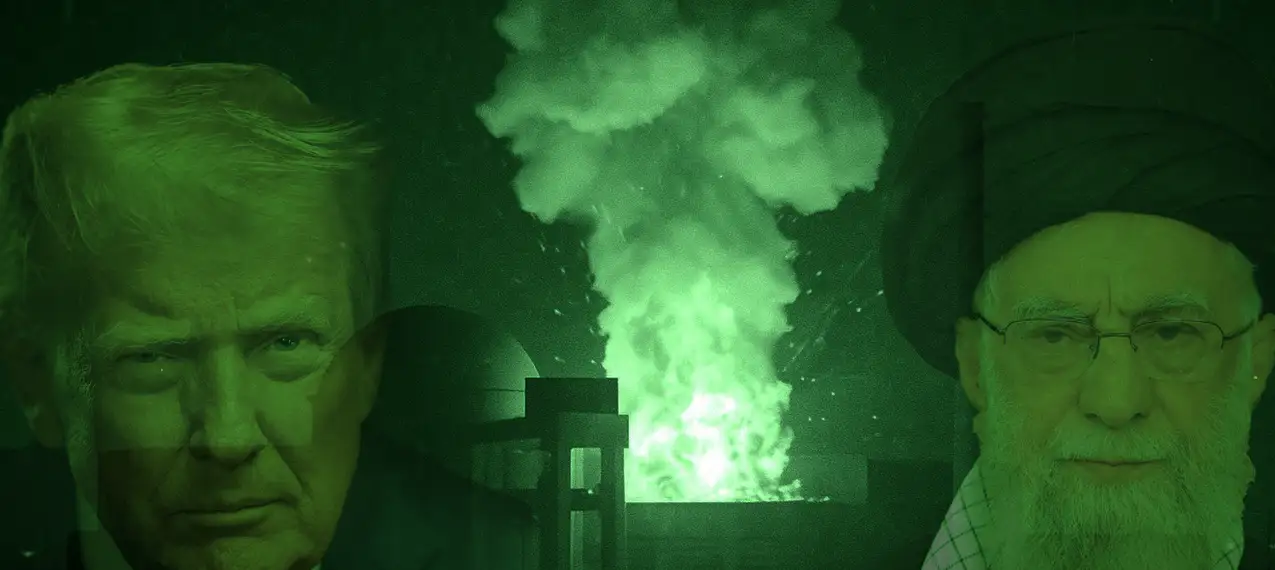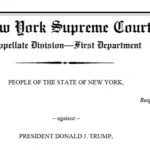
Yes! The President is within his constitutional authority to order isolated strikes on Iranian nuclear weapons production facilities without violating the War Powers Resolution.
Background
With the Trump administration’s strikes on Iran, a decades-old debate surrounding the intersection of executive and legislative power has resurfaced. The War Powers Resolution of 1973 (often referred to as the “War Powers Act”) was an effort by Congress to limit the President’s authority to initiate or escalate military conflicts without congressional approval. The Resolution stipulates that the President must notify Congress within forty-eight hours of deploying U.S. troops, and that military actions must end within sixty days unless Congress authorizes continued action.
Although the enumerated powers vested under Article I, Section 8 and Article II, Section 2 create inherent tension between Congress and the President, there are numerous examples over the last twenty-five years where presidents have used their constitutionally designated authority as commander in chief to address threats to the United States’ national security interests. For example, in March 1999, President Clinton authorized airstrikes against Yugoslavia before approval from the House of Representatives. In March 2011, the Obama administration launched an air campaign against Libya’s Gadhafi regime without congressional authorization. Further, in President Trump’s first term, he ordered a missile strike in Syria in response to their use of chemical weapons.
American Military Strikes in Iran
Although the missile and bomb strikes in Iran fall within this framework, members of Congress were quick to criticize President Trump’s actions. Rep. Thomas Massie (R-KY) called them “not constitutional.” Massie also joined Rep. Ro Khanna (D-CA) in introducing a new resolution, aiming to restrict military action in Iran and reassert Congress’s purported authority under the War Powers Act. Senator Tim Kaine also introduced a companion joint resolution in the Senate calling for the cessation of hostilities against Iran absent Congressional approval.
Reps. Massie, Khanna, and Senator Kaine, et al., are wrong about the Constitution and wrong about the law. There is little doubt as to the legality of the strikes. The administration informed Congress of its actions immediately after the bombers had departed Iranian airspace, easily clearing the forty-eight-hour threshold. The limited nature and duration of the strikes also shows that the Administration has no plans to exceed the 60-day threshold stipulated in the War Powers Resolution.
Conclusion
President Trump complied with the legal requirements of the law by:
- Notifying Congress within forty-eight hours of deploying military forces; and
- Terminating the operation within sixty days (in the absence of congressional authorization).
While further prolonged military action in Iran may require explicit consent of Congress, the Trump administration’s actions thus far are well within statutory and constitutional boundaries.
Previous lawsuits alleging presidential violation of the War Powers Resolution have failed. In 1990, a federal court in Washington, DC, dismissed a soldier’s challenge to President Bush’s deployment of his unit to the Persian Gulf. The district court found that the plaintiff’s challenge to the President’s deployment order presented a non-justiciable political question and asked the court to “delve into and evaluate those areas where the court lacks the expertise, resources, and authority to explore.”[1]
A federal appeals court reached a similar conclusion in 2000, when a group of U.S. congressmen challenged President Clinton’s military actions in Yugoslavia. The D.C. Circuit affirmed the district court’s dismissal for lack of standing, holding that the U.S. Congress has a broad range of legislative authority, and thus this political issue is correspondingly left to the political branches.[2]
On a final note, it also appears that the War Powers Act represents an unconstitutional attempt by Congress to seize war-making authority. Its provisions fail to account for the President’s clear constitutional role designated by the Framers. Esteemed legal scholar John Yoo has opined that the War Powers Resolution violates the Constitution because it attempts to weaken a core Article II power via statute. Congress cannot erode constitutional powers via statute.[3]
By disallowing the president from executing or directing military action, the War Powers Act produces an unworkable framework for time-sensitive, quick decision-making that is needed in times when our nation’s safety and national security are threatened.
Footnotes
SUPPORT LANDMARK LEGAL FOUNDATION
We are truly facing existential threats to our individual rights and liberties, the Constitution, and our national character. If unchallenged, this assault on our very way of life will ruin our great nation. With your financial and moral support, Landmark is not going to let that happen without a fight. Will you join us?
JOIN OUR MAILING LIST
Never miss an update from Landmark Legal Foundation as we continue the fight to preserve America’s principles and defend the Constitution from the radical left.





